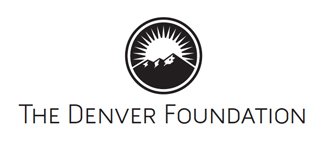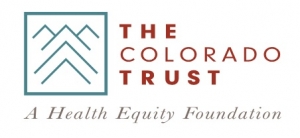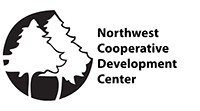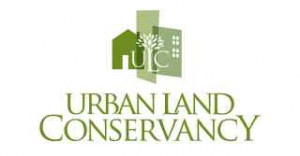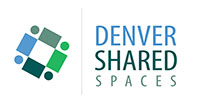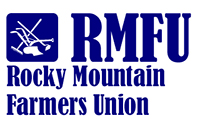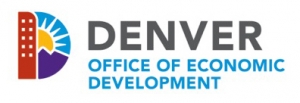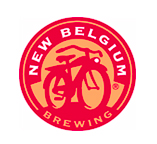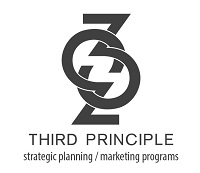Overview of the 2014 CWB Conference Program
Keynote speakers
Ed Whitfield, co-managing director of the Fund 4 Democratic Communities based in Greensboro, North Carolina.
Michael Peck, a national and international leader in the worker’s cooperative movement..
Breakout Session Descriptions
Co-ops 101: Building Your Cooperative
What is a cooperative? How is it structured? How does it work? Whether owned by its workers, producers, or consumers, in this session you’ll find out what makes a cooperative different from a traditional business and why democratic ownership matters for building wealth and economic opportunity in our communities. This will be an interactive session that will give you the chance to go through some of the first steps you would take to start your own cooperative, including: co-op mission/purpose, qualifications for membership, and who has control over co-op decision-making. Whether you’re part of a group that already has an idea for a co-op, or you just want to explore what is possible, this is the workshop for you!
Presenters: Linda Phillips, Esq. – Cooperative Lawyer, Phillips Law Offices LLC; and Amy Beres – Assistant Director, Urban Cooperative Development at Rocky Mountain Farmers Union Foundation
Achieving the Anchor Mission
This session will explore exciting new strategies for how large employers such as hospitals, universities, and other local institutions can engage with communities to build wealth in their surrounding neighborhoods. This approach to addressing some of the challenges experienced in many of the nation’s core urban communities is referred to as “Anchor Institutions.” How can we leverage anchor institutions for local job creation and wealth building? We will explore current efforts in Cleveland, Indianapolis, Miami, Philadelphia and other communities and come home to identify possibilities for Aurora, Colorado.
Facilitator: Mariana Ledezma-Amorosi, Associate Director, Community-Campus Partnership and Community Project Development Coordinator, Center for Public Health Practice, Colorado School of Public Health
Presenter: Steve Dubb, Director of Research, The Democracy Collaborative at the University of Maryland
Panel: Jim Shmerling, CEO, Children’s Hospital Colorado; Patrick Horvath, Director of Economic Development Programs, The Denver Foundation; John Harney, CEO, University of Colorado Hospital; Betsy Oudenhoven, President, Community College of Aurora
Direct Care Cooperatives: Their Development and Next Steps for Denver
Home from the hospital or managing self-care, wouldn’t it be great to have house cleaning and errands run for you? Direct care is among the fastest areas of job growth in the U.S. today. Coupling this growing need with cooperative organization has the potential to raise the standard of care and provide living wage jobs where workers have a voice in the business.
A Fort Collins group in the early stages of consideration and development will share their vision for a home care cooperative that may transform to include home health care. Important topics such as financing, outreach to prospective members, establishing care and benefit goals, and conducting a feasibility study will be illustrated and discussed with the help of Diane Gasaway, the Executive Director of the Northwest Cooperative Development Center. The session includes time for questions and dialogue with prospective caregivers (personal care aides, home health aides, and housekeepers), potential incubation organizations, and community organizers in the Denver Metro Area.
Challenge: Linking Two Movements — Local Food and Community Wealth Building
From community gardens, to backyard chickens, rooftop gardens, indoor aquaponic systems, urban farms, and city zoning changes, urban agriculture has become one of the fastest growing movements in the country and is morphing into an effort to transform this country’s food production and distribution system. Many regions across the U.S. are now grappling with creating a local food system. Embedded in this complex challenge is recognition that low-income communities have little access to affordable, healthy food. Funders focused on health and basic needs are now funding local agriculture projects as a strategy for increasing access to healthy foods in food deserts. The Community Wealth Building movement is about building economic engines with and in low-income communities, as opposed to providing on-going charity for subsistence living.
This session will provide an opportunity for Re:Vision* and GrowHaus** to discuss and explore their strategies and the challenges they face in both increasing access to healthy food in low-income communities and doing so in a way that creates economic opportunity for residents to transform the community from one of need, to one of health and prosperity. These local organizations will share their stories with the intention of sparking a dialogue to include the views and varied experiences of session participants.
* Re:Vision is a local nonprofit in the Westwood neighborhood in southwest Denver that works with residents to increase food production in the neighborhood. They are in the process of launching a neighborhood cooperative grocery store supplied and owned by resident producers and customers.
** GrowHaus is a nonprofit in Denver’s Elyria-Swansea neighborhood dedicated to building a thriving local economy around food production, distribution and education. They work closely with community residents to guide their operations, and are launching a micro-enterprise initiative this fall aimed at providing local families with sustainable economic opportunities.
Moderator: Jason Dilg, Producer of TEDxMileHigh
Presenters: Coby Gould, Executive Director of the GrowHaus and Eric Kornacki, Executive Director of Re:Vision
Should Unions Form Union-Owned Cooperatives?
Until recently most union members replied “no”. But that response is slowly beginning to change. Michael Peck, the Mondragon North America delegate (and one of the conference keynote speakers) will give a review of the Mondragon-Union connection and share information on the Union Co-op movement in Cincinnati, Pittsburgh and Reading, Pennsylvania. We will also hear from two local Union Co-ops: Bobert Guerrero from P&L Printing and Abdi Buni from Union Cab Company. They will each describe why they decided to start as a Union shop, not just a co-op shop. Tim Allport, a local union activist who strongly supports the Union Co-op concept will round out the panel, that will be moderated by David Portillo, Program Officer with the Strengthening Neighborhoods Program at The Denver Foundation.
Applying Rural Cooperative Lessons: from Collective Ownership to Democracy Building
Cooperatives in rural and urban environments act as economic engines for their members and their communities as well as schools for participatory democracy. Today, with healthy food access and wealth development a key issue in disenfranchised communities regardless of location, we have the opportunity to look once again to rural cooperatives as effective agents of growth and change in their rural communities and worthy examples for economic and social development in urban areas.
This session’s panel will include Spenser Wood, Interim Director of Ethnic Studies and professor of sociology at Kansas State, who will present case studies illustrating the dynamic historical role of cooperatives as gathering places, economic drivers, and educational hubs for rural African Americans and providing ideas for how such co-ops might impact their communities today. Muhidin Masakira, President of the Somali Bantu Community Association of Denver, will discuss their current search for farmland in metro Denver, their eventual goal to produce on a scaled-up acreage, and their perspectives on the different opportunities provided by rural and urban locales for their community. Harrison Topp, of Rocky Mountain Farmers Union, will share the reasons behind and hopes for the RMFU Cooperative Development Center’s 2015 goal of building community wealth through cooperative land tenure. Becca Jablonski, post doctoral fellow in CSU’s Department of Agricultural and Resource Economics, will discuss how strengthened rural-urban linkages through local food system initiatives impact both rural and urban communities, economies, consumers, and participating farmers.
These presentations aim to shed light on how embracing the cooperative model and narrowing the divide between rural and urban perspectives can help to increase wealth, opportunity, and healthy food access on both sides of the city limits.
University of Colorado | Anschutz Medical Campus Community-Campus Partnership: Neighbors working together for healthy, vibrant communities
The anchor institution effort comes alive in this presentation from University of Colorado’s own Community-Campus Partnership (CCP). In this interactive presentation we will hear its brief and unfolding story from Partnership staff and members of the Resident Leaders’ Network. We’ll learn about surprising obstacles and successes and develop our own reasons to watch this effort closely.
Presenters: Mariana Ledezma-Amorosi, Associate Director, C-CP and Community Project Development Coordinator, Center for Public Health Practice, Colorado School of Public Health; Gabriela Jacobo, Community Connector, C-CP; Lizzy Sinatra, Project Coordinator, C-CP
Panel: Ruben Medina, Director, Moorhead Recreation Center; Carol McBride, Pathway Development Director, Aurora Lights; Resident leader TBD
Community Wealth Building meets Public Policy
This session will overview the existing elements of public policy that support community wealth building on the state and national levels. Specific examples of potential new directions will be shared, with emphasis on promising practices in the areas of economic development, food systems, and health care.
Presenters: Tom Pierson, CooperationWorks! and Steve Dubb, The Democracy Collaborative at The University of Maryland
Community Wealth Building in Action: The Westwood Approach
Some people may look at the Westwood community in southwest Denver and see unfavorable statistics on household incomes, crime and education. However, vision, a cooperative attitude and perseverance, are all attributes that describe the proud individuals from this working class neighborhood who have taken control of their neighborhood and their lives. Several organizations are supporting residents to implement systemic economic change that has the potential to create a vibrant and resilient community.
This interactive panel will discuss the collaborative efforts in action within the Westwood community including the following topics:
Panelists: Debra Bustos, VP of Real Estate for Urban Land Conservancy; Rachel Cleaves, Coordinator for LiveWell Westwood; Jose Esparza, Executive Director of BuCu West; Eric Kornacki, Executive Director of Re:Vision
Finding Capital to Launch a Worker Cooperative
This panel presentation will provide information on local and national sources of capital to finance a start-up worker cooperative. Panelists include Elena Vasconez, Director of Business Development Programs at Mi Casa Resource Center and Ray Burrasca founder of ColoradoCrowdfunding.org. In addition to these local resources, panel moderator Richard Eidlin with the American Sustainable Business Council will share national resources that are appropriate for start-up co-ops. Presenters will also share business practices and tips for success in obtaining financing.
Employee Ownership: What It’s Like to be a Worker-Owner
Hear from representatives of worker cooperatives and ESOPs (Employee Stock Ownership Plans) in the Denver Metro Area about what daily life is like in a democratic workplace and how it feels to be a worker-owner of your own company. Worker-owners from new start-ups, established companies, and co-ops that have gone through conversion from traditional businesses will share the stories of how they got started and discuss the benefits for employees, the competitive advantages, and the unique challenges of being part of an employee-owned company. This session will be a moderated panel discussion with plenty of time for Q & A.
Moderator: Jason Wiener, Principal at Jason Wiener, P.C.
Panelists: Indira Guzman-Sais, Community Language Cooperative; Andrew Lemley, New Belgium Brewing Company; Elizabeth Irwin, The Birth Center of Boulder; Robert Guerrero, P & L Printing
Land Stewardship for Long Term Community Benefits
Session sponsored by the Urban Land Conservancy
A June 2014 Huffington Post blog titled “Urbanism at a Crossroads”, highlighted long term land stewardship using the Community Land Trust (CLT) model as a proven wealth generating strategy for low-income people. This interactive session will be led by two CLT veteran practitioners, exploring how long term control of land can achieve a variety of economic and social benefits.
Speaker Eugene (Gus) Newport will discuss his experiences pioneering national CLT efforts as a former Director of the Institute for Community Economics, as well as the origins and successful partnerships of the nationally recognized Dudley Neighbors, Inc. and his leadership role as its Executive Director. Dudley Neighbors, Inc. is an urban neighborhood CLT operating successfully for 25 years in Boston to implement resident-driven plans, while partnering with nonprofit organizations, community development corporations (CDCs), businesses and religious institutions serving the neighborhood, as well as banks, government agencies, corporations and foundations. Today it represents a collaborative effort of over 3,000 residents, businesses, non-profits and religious institutions committed to revitalizing a culturally diverse neighborhood of 24,000 people while maintaining its character and affordability.
Speaker Roger Lewis will share his experiences and perspective as the former Executive Director of the National Community Land Trust Network; a non-profit organization providing research, advocacy, education, and support for it’s over 250 CLT member organizations that nurture and sustain healthy and economically diverse communities. One of the core principles of the National CLT Network is the long term stewardship of land for a variety of purposes that benefit the community, such as affordable homes, community-based businesses, community-supported agriculture, and preservation of green space.
By sharing experiences from across the country we intend to spark a conversation on the potential for advancing Community Land Trusts in the Denver Metro Area. We anticipate time for audience questions and reflections on local opportunities.
Moderator: Tony Pickett, VP of Master Site Development with Urban Land Conservancy
Health and Community Wealth: Widening Our Vision and Our Measures
This session will open with data from the Denver metro region to illustrate how economic inequality has adverse effects on health and health care. This session will detail two cooperative initiatives directed at health inequity in Colorado before moving into a discussion of the interconnections between health, wealth, work, and community.
Moderator: Bill Stevenson, Director, Rocky Mountain Farmers Union Cooperative Development Center.
Panelists: Julia Hutchins, CEO, HealthOP; Lyn Gullette, Executive Director, Co-operate Colorado; and George Cheney, Associate Investigator, Ohio Employee Ownership Center, and Adjunct Professor, University of Utah and University of Waikato, New Zealand.
Applying Permaculture Principles to Building Community Wealth
How can we build wealth in our communities beyond merely increasing the flow of dollars? What concrete strategies can we use to grow natural, cultural, and social capital? Permaculture, at its essence, is a problem solving methodology that looks to the patterns and design of natural ecosystems to develop solutions to any problem. The practice of permaculture is grounded in the ethical principles of earth care, people care, and fair share.
This session will provide an introduction to permaculture design; permaculture take on community wealth and resilience, with case studies from across the nation; local currencies; resilience-based organizing; and an introduction to the Denver Permaculture Guild. Join members of the Denver Permaculture Guild for this lively group discussion about opportunities for growing community resilience and generating true wealth for our communities.
Presenters: Adam Brock and Ainslie O’Neil, Steering Committee members of the Denver Permaculture Guild.
Keynote speakers
Ed Whitfield, co-managing director of the Fund 4 Democratic Communities based in Greensboro, North Carolina.
Michael Peck, a national and international leader in the worker’s cooperative movement..
Breakout Session Descriptions
Co-ops 101: Building Your Cooperative
What is a cooperative? How is it structured? How does it work? Whether owned by its workers, producers, or consumers, in this session you’ll find out what makes a cooperative different from a traditional business and why democratic ownership matters for building wealth and economic opportunity in our communities. This will be an interactive session that will give you the chance to go through some of the first steps you would take to start your own cooperative, including: co-op mission/purpose, qualifications for membership, and who has control over co-op decision-making. Whether you’re part of a group that already has an idea for a co-op, or you just want to explore what is possible, this is the workshop for you!
Presenters: Linda Phillips, Esq. – Cooperative Lawyer, Phillips Law Offices LLC; and Amy Beres – Assistant Director, Urban Cooperative Development at Rocky Mountain Farmers Union Foundation
Achieving the Anchor Mission
This session will explore exciting new strategies for how large employers such as hospitals, universities, and other local institutions can engage with communities to build wealth in their surrounding neighborhoods. This approach to addressing some of the challenges experienced in many of the nation’s core urban communities is referred to as “Anchor Institutions.” How can we leverage anchor institutions for local job creation and wealth building? We will explore current efforts in Cleveland, Indianapolis, Miami, Philadelphia and other communities and come home to identify possibilities for Aurora, Colorado.
Facilitator: Mariana Ledezma-Amorosi, Associate Director, Community-Campus Partnership and Community Project Development Coordinator, Center for Public Health Practice, Colorado School of Public Health
Presenter: Steve Dubb, Director of Research, The Democracy Collaborative at the University of Maryland
Panel: Jim Shmerling, CEO, Children’s Hospital Colorado; Patrick Horvath, Director of Economic Development Programs, The Denver Foundation; John Harney, CEO, University of Colorado Hospital; Betsy Oudenhoven, President, Community College of Aurora
Direct Care Cooperatives: Their Development and Next Steps for Denver
Home from the hospital or managing self-care, wouldn’t it be great to have house cleaning and errands run for you? Direct care is among the fastest areas of job growth in the U.S. today. Coupling this growing need with cooperative organization has the potential to raise the standard of care and provide living wage jobs where workers have a voice in the business.
A Fort Collins group in the early stages of consideration and development will share their vision for a home care cooperative that may transform to include home health care. Important topics such as financing, outreach to prospective members, establishing care and benefit goals, and conducting a feasibility study will be illustrated and discussed with the help of Diane Gasaway, the Executive Director of the Northwest Cooperative Development Center. The session includes time for questions and dialogue with prospective caregivers (personal care aides, home health aides, and housekeepers), potential incubation organizations, and community organizers in the Denver Metro Area.
Challenge: Linking Two Movements — Local Food and Community Wealth Building
From community gardens, to backyard chickens, rooftop gardens, indoor aquaponic systems, urban farms, and city zoning changes, urban agriculture has become one of the fastest growing movements in the country and is morphing into an effort to transform this country’s food production and distribution system. Many regions across the U.S. are now grappling with creating a local food system. Embedded in this complex challenge is recognition that low-income communities have little access to affordable, healthy food. Funders focused on health and basic needs are now funding local agriculture projects as a strategy for increasing access to healthy foods in food deserts. The Community Wealth Building movement is about building economic engines with and in low-income communities, as opposed to providing on-going charity for subsistence living.
This session will provide an opportunity for Re:Vision* and GrowHaus** to discuss and explore their strategies and the challenges they face in both increasing access to healthy food in low-income communities and doing so in a way that creates economic opportunity for residents to transform the community from one of need, to one of health and prosperity. These local organizations will share their stories with the intention of sparking a dialogue to include the views and varied experiences of session participants.
* Re:Vision is a local nonprofit in the Westwood neighborhood in southwest Denver that works with residents to increase food production in the neighborhood. They are in the process of launching a neighborhood cooperative grocery store supplied and owned by resident producers and customers.
** GrowHaus is a nonprofit in Denver’s Elyria-Swansea neighborhood dedicated to building a thriving local economy around food production, distribution and education. They work closely with community residents to guide their operations, and are launching a micro-enterprise initiative this fall aimed at providing local families with sustainable economic opportunities.
Moderator: Jason Dilg, Producer of TEDxMileHigh
Presenters: Coby Gould, Executive Director of the GrowHaus and Eric Kornacki, Executive Director of Re:Vision
Should Unions Form Union-Owned Cooperatives?
Until recently most union members replied “no”. But that response is slowly beginning to change. Michael Peck, the Mondragon North America delegate (and one of the conference keynote speakers) will give a review of the Mondragon-Union connection and share information on the Union Co-op movement in Cincinnati, Pittsburgh and Reading, Pennsylvania. We will also hear from two local Union Co-ops: Bobert Guerrero from P&L Printing and Abdi Buni from Union Cab Company. They will each describe why they decided to start as a Union shop, not just a co-op shop. Tim Allport, a local union activist who strongly supports the Union Co-op concept will round out the panel, that will be moderated by David Portillo, Program Officer with the Strengthening Neighborhoods Program at The Denver Foundation.
Applying Rural Cooperative Lessons: from Collective Ownership to Democracy Building
Cooperatives in rural and urban environments act as economic engines for their members and their communities as well as schools for participatory democracy. Today, with healthy food access and wealth development a key issue in disenfranchised communities regardless of location, we have the opportunity to look once again to rural cooperatives as effective agents of growth and change in their rural communities and worthy examples for economic and social development in urban areas.
This session’s panel will include Spenser Wood, Interim Director of Ethnic Studies and professor of sociology at Kansas State, who will present case studies illustrating the dynamic historical role of cooperatives as gathering places, economic drivers, and educational hubs for rural African Americans and providing ideas for how such co-ops might impact their communities today. Muhidin Masakira, President of the Somali Bantu Community Association of Denver, will discuss their current search for farmland in metro Denver, their eventual goal to produce on a scaled-up acreage, and their perspectives on the different opportunities provided by rural and urban locales for their community. Harrison Topp, of Rocky Mountain Farmers Union, will share the reasons behind and hopes for the RMFU Cooperative Development Center’s 2015 goal of building community wealth through cooperative land tenure. Becca Jablonski, post doctoral fellow in CSU’s Department of Agricultural and Resource Economics, will discuss how strengthened rural-urban linkages through local food system initiatives impact both rural and urban communities, economies, consumers, and participating farmers.
These presentations aim to shed light on how embracing the cooperative model and narrowing the divide between rural and urban perspectives can help to increase wealth, opportunity, and healthy food access on both sides of the city limits.
University of Colorado | Anschutz Medical Campus Community-Campus Partnership: Neighbors working together for healthy, vibrant communities
The anchor institution effort comes alive in this presentation from University of Colorado’s own Community-Campus Partnership (CCP). In this interactive presentation we will hear its brief and unfolding story from Partnership staff and members of the Resident Leaders’ Network. We’ll learn about surprising obstacles and successes and develop our own reasons to watch this effort closely.
Presenters: Mariana Ledezma-Amorosi, Associate Director, C-CP and Community Project Development Coordinator, Center for Public Health Practice, Colorado School of Public Health; Gabriela Jacobo, Community Connector, C-CP; Lizzy Sinatra, Project Coordinator, C-CP
Panel: Ruben Medina, Director, Moorhead Recreation Center; Carol McBride, Pathway Development Director, Aurora Lights; Resident leader TBD
Community Wealth Building meets Public Policy
This session will overview the existing elements of public policy that support community wealth building on the state and national levels. Specific examples of potential new directions will be shared, with emphasis on promising practices in the areas of economic development, food systems, and health care.
Presenters: Tom Pierson, CooperationWorks! and Steve Dubb, The Democracy Collaborative at The University of Maryland
Community Wealth Building in Action: The Westwood Approach
Some people may look at the Westwood community in southwest Denver and see unfavorable statistics on household incomes, crime and education. However, vision, a cooperative attitude and perseverance, are all attributes that describe the proud individuals from this working class neighborhood who have taken control of their neighborhood and their lives. Several organizations are supporting residents to implement systemic economic change that has the potential to create a vibrant and resilient community.
This interactive panel will discuss the collaborative efforts in action within the Westwood community including the following topics:
- Grow local businesses, including the launch of a cooperative grocery store owned by neighborhood producers and customers
- Create new resident-based ownership opportunities and jobs
- Preserve developing community assets
- Beautify the neighborhood
- Strengthen connections between neighbors and commercial corridor
Panelists: Debra Bustos, VP of Real Estate for Urban Land Conservancy; Rachel Cleaves, Coordinator for LiveWell Westwood; Jose Esparza, Executive Director of BuCu West; Eric Kornacki, Executive Director of Re:Vision
Finding Capital to Launch a Worker Cooperative
This panel presentation will provide information on local and national sources of capital to finance a start-up worker cooperative. Panelists include Elena Vasconez, Director of Business Development Programs at Mi Casa Resource Center and Ray Burrasca founder of ColoradoCrowdfunding.org. In addition to these local resources, panel moderator Richard Eidlin with the American Sustainable Business Council will share national resources that are appropriate for start-up co-ops. Presenters will also share business practices and tips for success in obtaining financing.
Employee Ownership: What It’s Like to be a Worker-Owner
Hear from representatives of worker cooperatives and ESOPs (Employee Stock Ownership Plans) in the Denver Metro Area about what daily life is like in a democratic workplace and how it feels to be a worker-owner of your own company. Worker-owners from new start-ups, established companies, and co-ops that have gone through conversion from traditional businesses will share the stories of how they got started and discuss the benefits for employees, the competitive advantages, and the unique challenges of being part of an employee-owned company. This session will be a moderated panel discussion with plenty of time for Q & A.
Moderator: Jason Wiener, Principal at Jason Wiener, P.C.
Panelists: Indira Guzman-Sais, Community Language Cooperative; Andrew Lemley, New Belgium Brewing Company; Elizabeth Irwin, The Birth Center of Boulder; Robert Guerrero, P & L Printing
Land Stewardship for Long Term Community Benefits
Session sponsored by the Urban Land Conservancy
A June 2014 Huffington Post blog titled “Urbanism at a Crossroads”, highlighted long term land stewardship using the Community Land Trust (CLT) model as a proven wealth generating strategy for low-income people. This interactive session will be led by two CLT veteran practitioners, exploring how long term control of land can achieve a variety of economic and social benefits.
Speaker Eugene (Gus) Newport will discuss his experiences pioneering national CLT efforts as a former Director of the Institute for Community Economics, as well as the origins and successful partnerships of the nationally recognized Dudley Neighbors, Inc. and his leadership role as its Executive Director. Dudley Neighbors, Inc. is an urban neighborhood CLT operating successfully for 25 years in Boston to implement resident-driven plans, while partnering with nonprofit organizations, community development corporations (CDCs), businesses and religious institutions serving the neighborhood, as well as banks, government agencies, corporations and foundations. Today it represents a collaborative effort of over 3,000 residents, businesses, non-profits and religious institutions committed to revitalizing a culturally diverse neighborhood of 24,000 people while maintaining its character and affordability.
Speaker Roger Lewis will share his experiences and perspective as the former Executive Director of the National Community Land Trust Network; a non-profit organization providing research, advocacy, education, and support for it’s over 250 CLT member organizations that nurture and sustain healthy and economically diverse communities. One of the core principles of the National CLT Network is the long term stewardship of land for a variety of purposes that benefit the community, such as affordable homes, community-based businesses, community-supported agriculture, and preservation of green space.
By sharing experiences from across the country we intend to spark a conversation on the potential for advancing Community Land Trusts in the Denver Metro Area. We anticipate time for audience questions and reflections on local opportunities.
Moderator: Tony Pickett, VP of Master Site Development with Urban Land Conservancy
Health and Community Wealth: Widening Our Vision and Our Measures
This session will open with data from the Denver metro region to illustrate how economic inequality has adverse effects on health and health care. This session will detail two cooperative initiatives directed at health inequity in Colorado before moving into a discussion of the interconnections between health, wealth, work, and community.
Moderator: Bill Stevenson, Director, Rocky Mountain Farmers Union Cooperative Development Center.
Panelists: Julia Hutchins, CEO, HealthOP; Lyn Gullette, Executive Director, Co-operate Colorado; and George Cheney, Associate Investigator, Ohio Employee Ownership Center, and Adjunct Professor, University of Utah and University of Waikato, New Zealand.
Applying Permaculture Principles to Building Community Wealth
How can we build wealth in our communities beyond merely increasing the flow of dollars? What concrete strategies can we use to grow natural, cultural, and social capital? Permaculture, at its essence, is a problem solving methodology that looks to the patterns and design of natural ecosystems to develop solutions to any problem. The practice of permaculture is grounded in the ethical principles of earth care, people care, and fair share.
This session will provide an introduction to permaculture design; permaculture take on community wealth and resilience, with case studies from across the nation; local currencies; resilience-based organizing; and an introduction to the Denver Permaculture Guild. Join members of the Denver Permaculture Guild for this lively group discussion about opportunities for growing community resilience and generating true wealth for our communities.
Presenters: Adam Brock and Ainslie O’Neil, Steering Committee members of the Denver Permaculture Guild.

